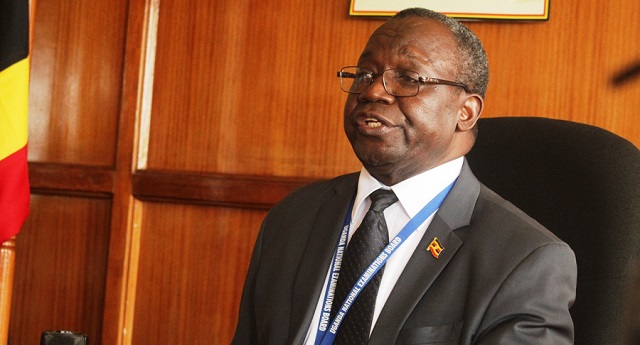
KAMPALA, UGANDA | THE INDEPENDENT | The Uganda National Examinations Board (UNEB) has raised alarm over the sluggish judicial proceedings concerning exam malpractice, which they believe hampers the effective enforcement of the newly amended laws aimed at eradicating this issue in schools.
Dan Odongo, UNEB’s Executive Director, stressed the importance of timely resolution of cases of malpractice, stating that many cases from the 2022 and 2023 national examination cycles remain unresolved.
Odongo made the remarks while talking to journalists at the sidelines of a seminar aimed at preparing district, municipal, and city school inspectors for the upcoming national examinations, which will be starting in October.
Examination malpractice continues to hinder the education system. When UNEB enacted new laws with strict provisions, including hefty fines and long prison sentences for those convicted, they hoped these measures would help curb the issue, especially if offenders were held accountable.
Despite the initial optimism surrounding the new law, which was introduced with much fanfare, it has not proven to be as effective as hoped in addressing the issue of exam malpractice. For instance, from last year’s examination cycle, 21 cases of malpractice were filed in courts across the country, yet most of these cases remain unresolved.
Odongo noted that the board is currently working to engage the judiciary to expedite the handling of education malpractice cases, aiming to create a more significant impact.
Over the years, UNEB has consistently raised concerns about delayed judicial processes and, at one point, advocated for the establishment of a special court to expedite the trial of these cases. Addressing the issue last year, Prof. Celestino Obua, the UNEB Chairperson, emphasized the need for a dedicated court to centralize all malpractice cases.
He added that such a court would not only facilitate quicker resolutions and more efficient handling of these matters but also reduce the resources—both human and financial—required to manage them. Meanwhile, Frances Atima, a UNEB board member and the Director of Education Standards at the Ministry of Education, acknowledged that while there are still challenges in expediting case resolutions, the board has made progress in addressing the issue by plugging leakages.
She noted that the main problem persists in the distribution of examinations from storage centers to schools, as well as what occurs at the school level. “The best way to tackle this issue is through prevention,” Atima stated. “We are focused on ensuring that individuals of integrity are involved in the distribution and invigilation of examinations. If this is managed effectively, we can significantly mitigate the problem.”
Odongo confirmed that many of the examination leakages reported last year occurred during distribution. He explained that some individuals entrusted with the exam papers, particularly those handling the Primary Leaving Examination (PLE), have been cutting open parcels, photographing the papers, and leaking them to schools.
In 2022, Mbayo Mamba, the headteacher of Namasuba Parents Primary School in Wakiso District, faced legal trouble for allegedly attempting to illegally open a sealed PLE parcel. He was apprehended in Butambala District while conspiring with Chris Rutayisire, an examination distributor, and Michael Mulindwa, the driver of the van hired by UNEB to transport transcripts to four schools.
Last year, several headteachers and teachers from districts like Kasanda and Kikuube were also arrested for sharing what appeared to be the national Primary Leaving Examination (PLE) via social media. Odongo pointed out that they have discovered that examinations have often been entrusted to irresponsible individuals, including boda boda riders, for distribution, which has led to significant leakages.
To address this issue, the UNEB executive director stated that moving forward, only senior local government officials, such as department heads and principal officers, will be authorized to handle the distribution of examinations. He emphasized that individuals in these higher positions can be held more accountable than the junior staff or random individuals who have been employed in recent years.
*****
URN
 The Independent Uganda: You get the Truth we Pay the Price
The Independent Uganda: You get the Truth we Pay the Price



